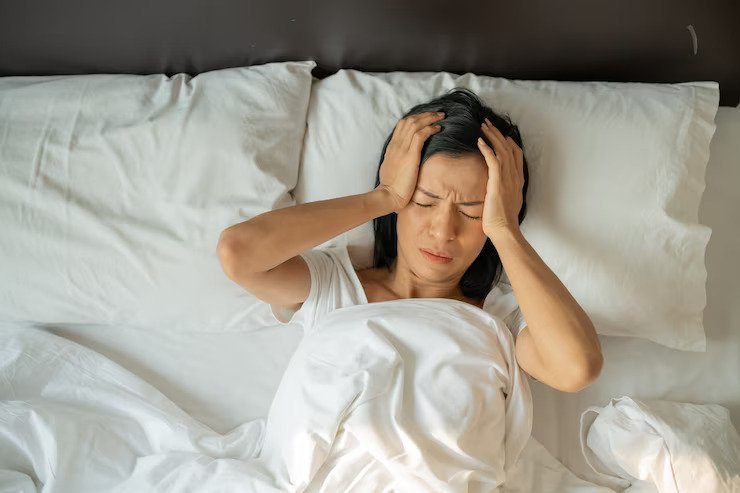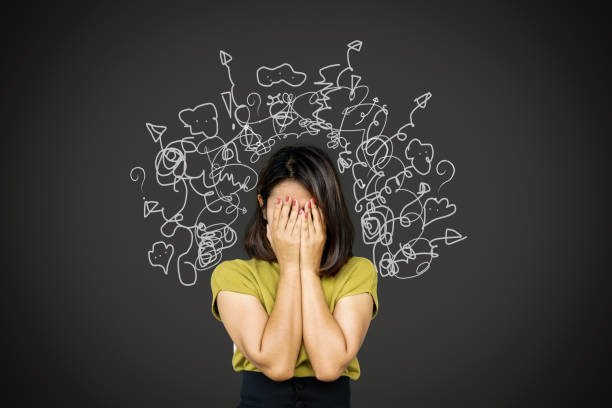Technology’s Effect on Sleep: Controlling Screen Time to Prevent Insomnia
June 10, 2024 | by macedward

The ubiquitous presence of technology in our increasingly digital environment has completely changed the way we work, communicate, and pass our time. But there is a price to this widespread use of technology, especially in terms of our sleep. Our natural sleep-wake cycles have been disturbed by the introduction of cellphones, tablets, laptops, and televisions, which has added to the increasing incidence of insomnia. Comprehending the effects of technology on sleep and putting screen-time management techniques into practice are essential for battling insomnia and encouraging sound sleep.
The Technology’s Disruptive Effects on Sleep
Technology undoubtedly has an allure, but it also has a significant impact on how well we sleep. The main offender is the blue light that screens and other electronic devices emit. Blue light can inhibit the generation of melatonin, the hormone that controls sleep-wake cycles, due to its short wavelength and high energy. Evening blue light exposure can postpone the onset of sleep, making it more difficult to fall asleep at night and disrupting sleep cycles.
Additionally, the stimulating qualities of digital entertainment may potentially be a factor in disturbed sleep. Before going to bed, engaging in stimulating activities like browsing social media, watching exciting movies, or playing action-packed video games can raise alertness and arousal, making it challenging to de-stress and enter a sleep-promoting state of relaxation.
The Insomnia Epidemic’s Role in Technology
Sleeplessness has become epidemically common, affecting millions of people globally who struggle with chronic sleeplessness. This issue is greatly exacerbated by technology, since studies have shown that excessive screen time is associated with higher rates of insomnia and other sleep disorders in all age groups. The lines between work and play have become increasingly hazy as a result of the widespread use of technology, which has affected every part of our life from kids and teenagers hooked to their cellphones to adults working late into the night on laptops.
Furthermore, it is far too simple to bring devices into the bedroom due to the portability and simplicity of smartphones and tablets, which further disturbs our sleeping settings. We can stay up well beyond our planned bedtime due to the urge to check emails, browse social media, or watch one more episode of a favorite TV show. This can exacerbate the symptoms of insomnia and prolong the cycle of sleep deprivation.
Controlling Screen Time to Improve Sleep
Even while technology might be problematic, there are things we can do to lessen its effects on sleep and recover peaceful evenings. Promoting sound sleeping practices and preventing insomnia need the implementation of efficient screen time management techniques.
Set Up an Electronic Curfew
Decide on a time each evening when you will switch off or place all electronic gadgets in “Do Not Disturb” mode. This removes the distracting influence of screens and helps your brain relax and get ready for sleep.
Make Your Bedroom a Sleep-Friendly Space: Electronics should not be used in bedrooms, or should be kept out of reach from beds. Creating a screen-free and distraction-free sleeping environment can assist in informing your brain when it’s time to turn in and go to sleep.
Set a Screen Time Limit Before Sleep:
Try not to spend too much time on screens an hour before going to bed. To encourage relaxation and get your body ready for sleep, try these soothing activities: read a book, take a warm bath, or practice mindfulness meditation in place of watching TV or scrolling through social media.
Use Blue Light Filters
To lessen the quantity of blue light that electronic gadgets release, especially at night, think about utilizing blue light filters or programs. By reducing the negative effects of screens on melatonin generation, these filters can aid in the body’s natural transition from wakefulness to sleep.
Create Sound Sleep Practices
Make good sleep hygiene habits a priority, including sticking to a regular sleep schedule, setting up a calming nighttime ritual, and arranging your sleeping space to be as comfortable and peaceful as possible. These routines can assist in balancing your body’s internal clock and encourage deeper, more peaceful slumber.
Ask for Expert Assistance If Needed
Try talking to a healthcare provider or sleep specialist for professional assistance if these tactics don’t help you overcome your chronic insomnia. They can assist in determining the underlying causes of your sleep problems and make tailored therapy recommendations to meet your individual requirements.
Results
Without a doubt, the widespread use of technology in our daily lives has transformed the way we interact, work, and live. But we can’t ignore how it affects our sleep. Overusing screens can interfere with our natural sleep-wake cycles, worsen insomnia, and lower the quality of our sleep in general. This is especially true in the evenings. Through comprehension of the ways in which technology disrupts sleep and application of efficient screen time management techniques, we may recover peaceful evenings and foster ideal sleep well-being. To battle insomnia and promote a more balanced relationship with the digital world, it is imperative to prioritize sleep and set appropriate boundaries with technology.
RELATED POSTS
View all


